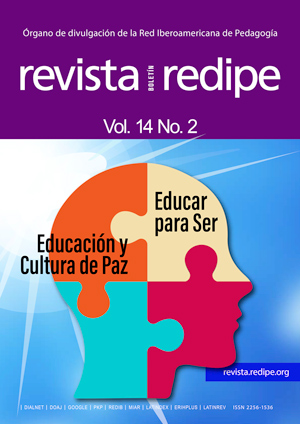La Comunicación fallida: La lucha por la hegemonía política y la hegemonía mediática, durante “el gobierno del cambio”
Main Article Content
Keywords
Hegemony, Media matrix, Information agenda, PFN Triangle
Abstract
This essay proposes a model of analysis of news production and the production of opinion by the hegemonic media against the government of change. Initially, failed communication is defined in a double sense: the first, it refers to the failed communication of the government of change, its errors by action and by omission are identified, as a structural failure that has played against President Gustavo Petro and his alternative political project. And the second, the failed communication of the opposition and the establishment, which has not been able to conceive of responsible communication committed to the truth at the service of Colombian society, beyond its corporate interests.
Based on the concept of Hegemony, a difference between political hegemony and media hegemony is raised, as part of the struggle for power; The articulation of these two hegemonies in the dynamics between communication, politics and power in Colombia is analyzed. Likewise, three categories are postulated, outside of common sense, that make up the analysis model. They are: the media matrix, the PFN triangle and the information agenda, differentiated, theoretically and methodologically. Based on the empirical research that supports said model, rules for the production of information and opinion are specified. These rules make up a grammar that is illustrated with specific cases, taken from the media themselves and from the president’s messages, to see how the former build a media hegemony at the service of the political hegemony of the establishment. For its part, the government of change and its followers attempt to create a counterhegemony or a new hegemony, which in turn implies a different grammar.
References
Dagnino, E. (2001) “Cultura, ciudadanía y democracia. Los discursos y prácticas cambiantes de la izquierda Latinoamericana”. En el libro “Política cultural y cultura política, una nueva mirada sobre los movimientos sociales latinoamericanos”. Editado por Arturo Escobar, Sonia Álvarez y Evelina Dagnino. Publicado por Taurus y el Instituto Colombiano de Antropología e Historia, Bogotá.
Cintia Sanmartin Fernandes, Micael Herschmann, Rose de Melo Rocha, Simone Luci Pereira. (2022) Orgs. A(r)tivismos urbanos (sobre) vivendo em tempos de urgencias. Editora Sulina, Porto Alegre.
Gramsci, A. La Formación de los intelectuales. s/f
Gramsci, A. Literatura e vida nacional (1986) Editora Civilizacao Brasileira – Río de Janeiro
Torrijos, G. (2023) Entrevista a Rodrigo Uprimny: “La opción por la discusión racional no es para los períodos tranquilos” El Espectador, Bogotá, domingo 1 de octubre, p.16
Continúa…2a. PARTE La matriz mediática, el triángulo PFN y la Agenda informativa… La matriz mediática y la agenda informativa



